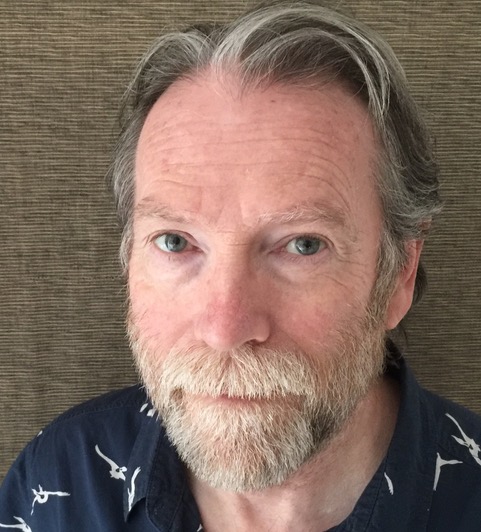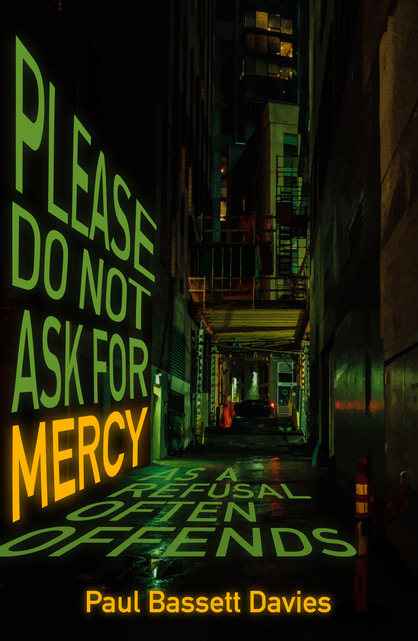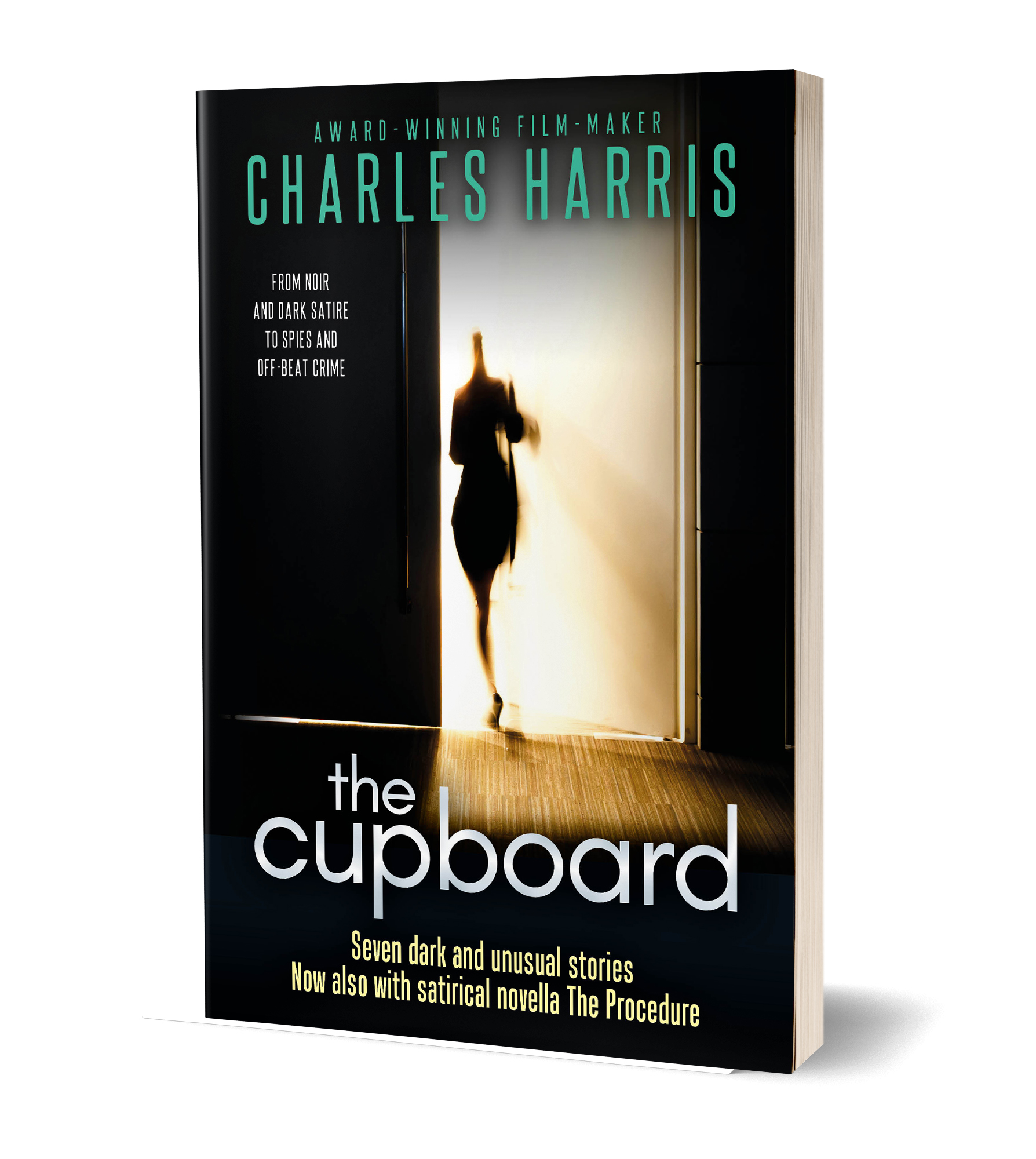Talking with comedy best-seller Paul Bassett Davies
06 Wednesday May 2020
Written by Charles Harris in Books, Comedy, Interviews
PAUL BASSETT DAVIES

I’m really pleased that this week we have a guest appearance by the best-selling comedy writer (and a good friend of mine) Paul Bassett Davies.
Paul has been a writer, director and performer for stage, radio, TV and film, and is an author and broadcaster. He’s worked with some of the biggest names in British comedy, and written several radio plays. He wrote the screenplay for the feature animation The Magic Roundabout and worked on music videos for Ken Russell and Kate Bush.
Paul’s first novel Utter Folly topped the Amazon Humorous Fiction chart, and was optioned for TV. His story The Spots is one of Six Scary Stories, Selected and Introduced by Stephen King, published by Hodder. His second novel, Dead Writers in Rehab was published in 2017.
His new novel, Please do not Ask for Mercy as a Refusal Often Offends was published this week, on 4 May by Eye & Lightning Books.
Q&A with Paul Bassett Davies
- Paul, you have a finger in many pies – what would you say ties all these together?
Storytelling.
- You’ve just launched a new book Please do not Ask for Mercy as a Refusal Often Offends. What was your inspiration for the story?
I wanted to write something using language in a playful way. I had the idea of an alternative world, but I didn’t want to write a fantasy. So, it’s set in a dystopia. But I also wanted it to be funny.

My initial approach was: “Blade Runner, but instead of Deckard, it’s Inspector Clouseau.” But as I wrote the novel, it became more sinister and less comical. However, there’s still an undercurrent of dark humour.
- How did you start writing? What sparked your interest and when?
I was good at English at school, and acting, and crap at everything else.
- Can you tell us a bit about your background? How did you start off?
The day after I got thrown out of one of the country’s best drama schools, I started my own theatre company with a friend. I wanted to be on stage, and once I was there, I needed something to say and do, so I started writing. We became an experimental multimedia performance company. Our work was surreal, and strongly visual.
- I see you’ve been the vocalist in a punk band, a welder’s mate and a cab driver, among other things. Do you feel that early training and career has influenced your writing in any way, positively or negatively.?
One thing I learned is that “welder’s mate” doesn’t mean “a person who’s friends with a welder.” It means a person who undergoes terrifying and dangerous ordeals while the welder drinks tea and laughs at him. That was my experience, anyway.
Being a cab driver confirmed to me that everyone is weird.
- What do you feel led to your first success? Was there a realisation on your part or a change of approach?
I’m still waiting for success, like every writer I know, or have ever heard of, including writers who are very successful. Especially them, in fact.
- Do you take up any political positions? Support any party? Or cause? Do you feel your writing reflects your views or do you deliberately avoid any such influences?
I’m an anarcho-Buddhist democratic socialist. I can’t separate any part of myself from the rest of me, or from the world.
My writing will always reflect my views. But not in a clunky, doctrinaire way, I hope.
- How do you write? I think both writers and readers are interested in the mechanics – do you have fixed hours or a target word count? A favourite place? A special pencil?
I can’t begin writing without seven freshly sharpened HB pencils on my desk. I don’t write in pencil; I use a computer like everyone else. But making all those pencils precisely the same length is a terrific displacement activity. Sometimes it takes all day.
- Do you plan? Do you generally have a sense of the ending you’re heading to, or do you dive entirely into the unknown?
I usually know where I’m going, but not exactly how to get there. Sometimes I end up somewhere unexpected, which is also an experience I like to give to readers.
- You’ve also performed one-man shows and written for radio, film and TV. Do you find you have to approach them differently from novels?
Writing novels is less exciting, but can be more creatively rewarding.
Film and TV are full of assholes; radio not so much – mostly because there’s less money in it.
- Who/what are your major influences? Whether other books, films, writers or indeed non-literary figures?
Charles Dickens, Flann O’Brien, Jane Austen, Samuel Beckett, Buster Keaton, Stanley Kubrick, Patti Smith, Tom Waits, Tobias Smollett, Anthony Trollope.
- What do you read? And, perhaps equally importantly, given how much a writer has to spend time on writing and publicising, how do you find time to read it?
I read all the time. Novels, magazines, and the entire contents of the internet, every morning.
- What do you do for fun? (Not to say that writing can’t be fun). How do you spend your time off?
My whole life is a cavalcade of fun. Seriously, my life is a joy and blessing.
- What’s next for you?
I’ve just written another novel, a psychological thriller, and I want to get it out there. I’m always writing short stories. I’ve got a screenplay on the go, and maybe a radio a play.
Read more
Do Not Ask For Mercy As A Refusal Often Offends
Paul Bassett Davies’ Story Collection


Tell people what you think